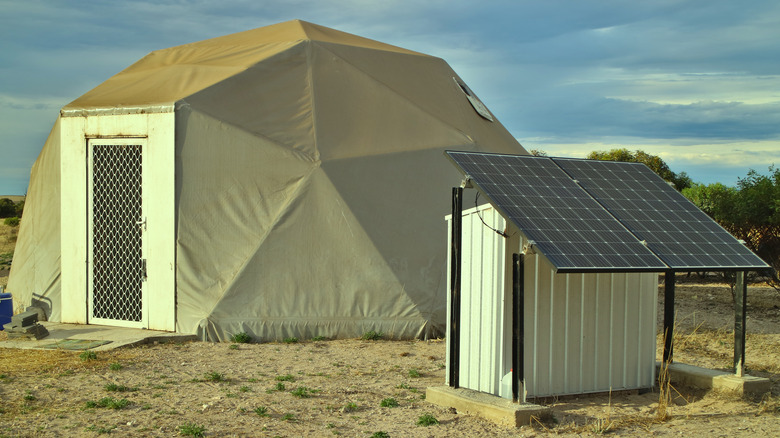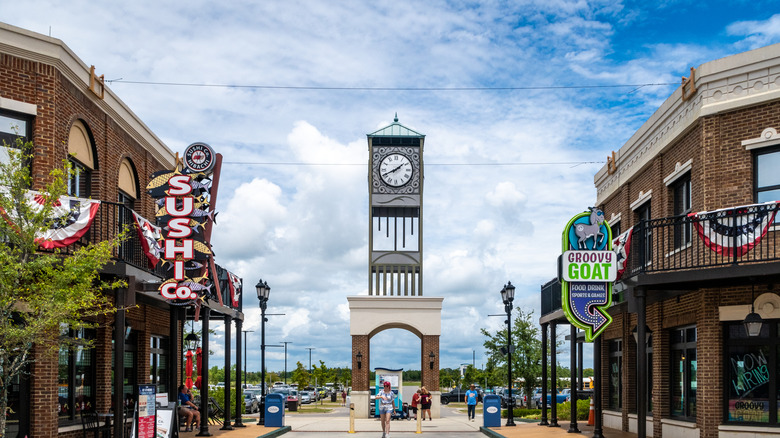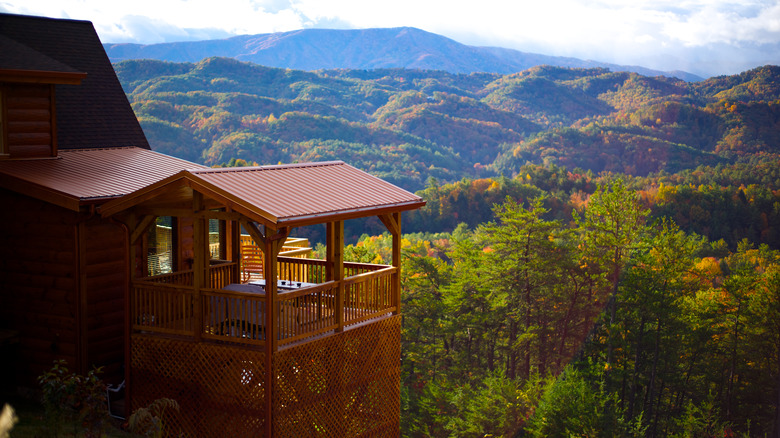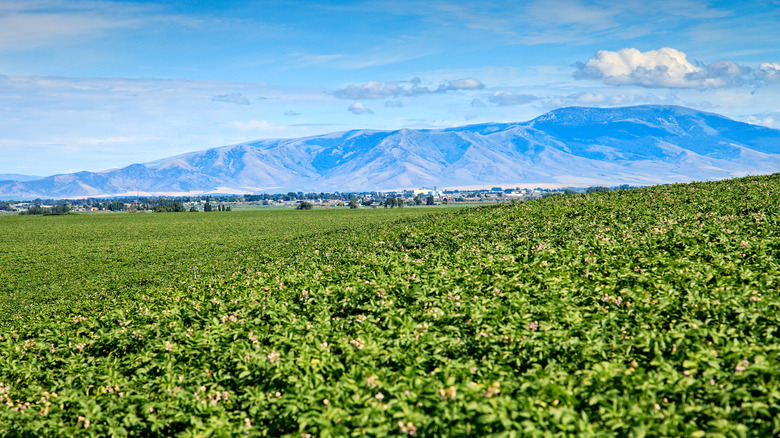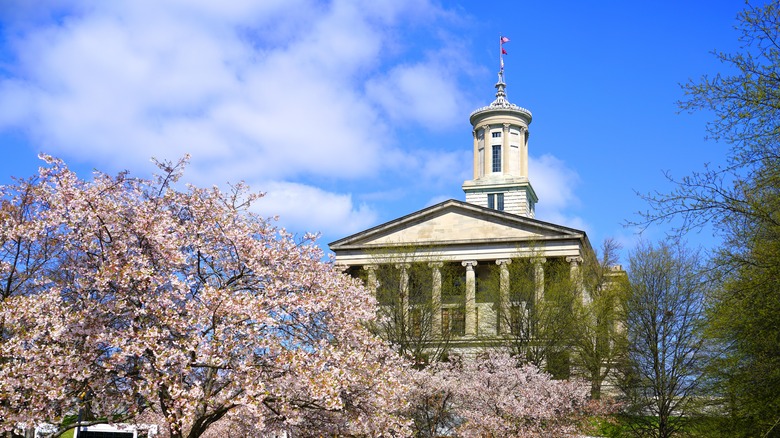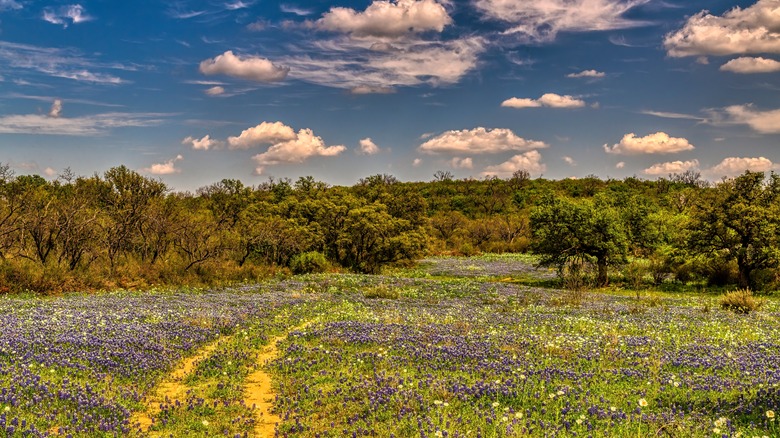Top 5 States Best For Off-The-Grid Living
The sun and wind are powerful natural resources that enable you to live a rural yet substantial life off the grid. Sustainability to the max, off-grid living is a physical detachment from electrical hook-up, including cables, wires, or even pipes. But why go off-grid? Living independently from modern civilization doesn't exactly mean pitching a tent in the middle of the woods or building a secluded shelter on top of a mountain, as these approaches might be more temporary. It's an autonomous way of life that doesn't rely on the use of public utilities, thus being disconnected from the electrical framework. According to Enel X, all utilized power must come from some energy source that can supply and maintain it unaccompanied by technology.
There are many reasons why you might go off-grid, like living an eco-friendly existence, saving money, preparing for the unexpected, or simply living a more pious life. Is living off-the-grid legal? Most states legally allow this lifestyle, but you need to be aware of their zoning laws. Whether you build your own house or cabin or live off purchased land or property, make sure your taxes are paid and you can legally harvest rainwater. You must also be confident that you are self-sufficient enough to generate power. If you're thinking about returning to basics, consider many areas within the United States. Based on climate, cost of living, and overall ease, these states are the top choice for going off-grid.
1. Alabama
If you're looking to establish your sweet rural abode in Alabama, the southern state has been ranked one of the top places for off-grid living. Cheap and rural, the Cotton State offers some of the most inexpensive land and low property taxes in the U.S. Some benefits include substantial discounts and incentives for using solar and wind power systems. If you plan to plant crops, make sure you have rich, fertile farmland, and you should be able to grow corn, grain, soybeans, and various vegetables. According to Off Grid Grandpa, with ample rainfall each year (about 56 inches) and moderately warm temperatures, you can sustain your crops with ease, although be mindful of potential bug invasions. Additionally, you can freely collect your rainwater while keeping your container or tank clean. Currently, there are no restrictions on water harvesting in Alabama.
Many off-grid residents might choose to settle in the northern parts of Alabama, like the rural communities of Blount or Jackson counties, per Advance Local. In Blount, one is called Common Ground, which consists of a group of friends investing in about 80 acres of farmland. Eliminating water or power bills, they choose to live a more natural way of life with solar panels powering a large homemade option fashioned from only straw and stucco. They also keep chickens on the property to sustain food like eggs, corn, and other fruits and vegetables. Occasionally, they purchase a propane tank for cooking purposes.
2. Georgia
Georgia is a fruitful state, ideal for growing crops with mild weather conditions most of the year. From peaches to pecans, the Peach State flourishes with a variety of off-the-grid living benefits. From north to east, some of the best counties for homesteading in Georgia are Chatham, Cherokee, Hall, and Burke, among others. Water harvesting is permissible since the region receives lots of rainfall. Yet Georgia has some of the highest pollution levels, so make sure to test your groundwater before tasting or even purchasing a plot of land, per Off Grid Grandpa. Although the state may be lacking in good economic conditions, including its education and healthcare systems, other factors may make up for it. Depending on how rural you want to be, Georgia offers beautifully diverse land, from the Blue Ridge mountains to the east coast Atlantic.
You can find a Freedom Village location in various areas of Georgia, a modern off-the-grid eco-conscious community. Based on common principles, the retreat welcomes artisans and those who strive for a more sustainable lifestyle while incorporating science and technology, per The Global Ecovillage Network. These self-contained groups may be found in cities like Atlanta, Athens, Augusta, Macon, and Savannah.
3. Idaho
Rural, scenic, and no short of potatoes, Idaho may be one of the most prominent off-the-grid areas to settle down in because of its natural provisions. Besides being free to go off-grid, the Gem State allows rainwater harvesting and is the country's largest producer of potatoes. With ideal spud growing conditions typically found in the east, Idaho sustains valuable volcanic soil, allowing potato crops to flourish. Furthermore, its light ash-like consistency consists of fine minerals, which help condition overall potato growth, per Idaho Potato Museum. Melted snow from the mountains also courses down into the reservoirs each spring to help assist. The northwestern state is all-around when it comes to growing other crops as well, like barley, beans, and peas, among other fruits and vegetables. Due to the semi-arid climate, many greenhouses are present in the northern part of Idaho.
Furthermore, be prepared for harsh weather, as the wintertime in Idaho brings heavy snowfall, especially among high elevation roads with the potential of unprotected curvatures. While following local zoning laws and state building codes, you'll want to look far north for some of the most undisturbed off-grid counties like Bonner and Boundary, including Gem, Idaho, and Washington, per Primal Survivor. These areas are relaxed regarding inspections and offer overall freedom of how you want to run things. Although the cost of living in the potato state is about 5% lower than the national average, housing costs are approximately 14% higher than average.
4. Tennessee
The Volunteer State is known to be one of the most unrestricted states among off-gridders, including less hassle with permits. With a low cost of living and its properties about 28% less than the national average, the southern state also provides the absence of state income tax. According to Part-Time Money, Tennessee is among several states without the requirement for citizens to pay a state income tax; however, it implements a higher sales tax. The seasonal state has a relatively mild climate with hot summers and cold winters, especially in the mountains. Tennessee also receives a good amount of rainfall with clean groundwater.
If you're seeking an off-the-grid adventure within Tennessee, you'll want to head east. Many off-grid-friendly areas may be found in these counties: Cannon, Chester, Lawrence, Morgan, and Polk. Check various counties on their regulations and rebates regarding wind and solar power. Additionally, Tennessee offers fertile land ideal for planting a vegetable garden, including corn, grain, hay, soybeans, tobacco, and wheat. The great outdoors also delivers diversified wildlife like black bears, deer, foxes, bobcats, and raccoons. Fishing might also be an option with a lake nearby to catch bass, catfish, gar, and sunfish, among others.
5. Texas
One of the largest U.S. states, Texas offers a variety of places to set up electrically detached. Many off-gridders flock to Texas because the state provides the best low-cost living and offers affordable lands. Some of the most favorable counties cover various areas of the broad state like Brewster, Collin, Dallas, El Paso, Red River, and Sabine. With lots of territories to explore, the Lone Star State offers reasonable rules and regulations for off-grid homesteaders, including cabins and trailers — just be sure to follow the laws of your area. While being another no-income-tax state, Texas also offers excellent savings on solar and wind power with specific money-saving production and investment tax credits regarding wind energy.
With desert-like terrain, you may need to stockpile your water resource. According to Best Places, Texas may receive about 25 inches of rainfall annually, whereas the U.S. average is typically 38 inches. With this, you might invest in a BPA-free food-grade storage tank, which can hold over 200 gallons. You should be able to sustain a variety of plant life and crops like beets, carrots, lettuce, and radishes as long as they receive sufficient water, per Harvest by Hillwood. With room to grow, Texas' population has gradually progressed over the years, maintaining its position as one of the best states for people to inhabit.
